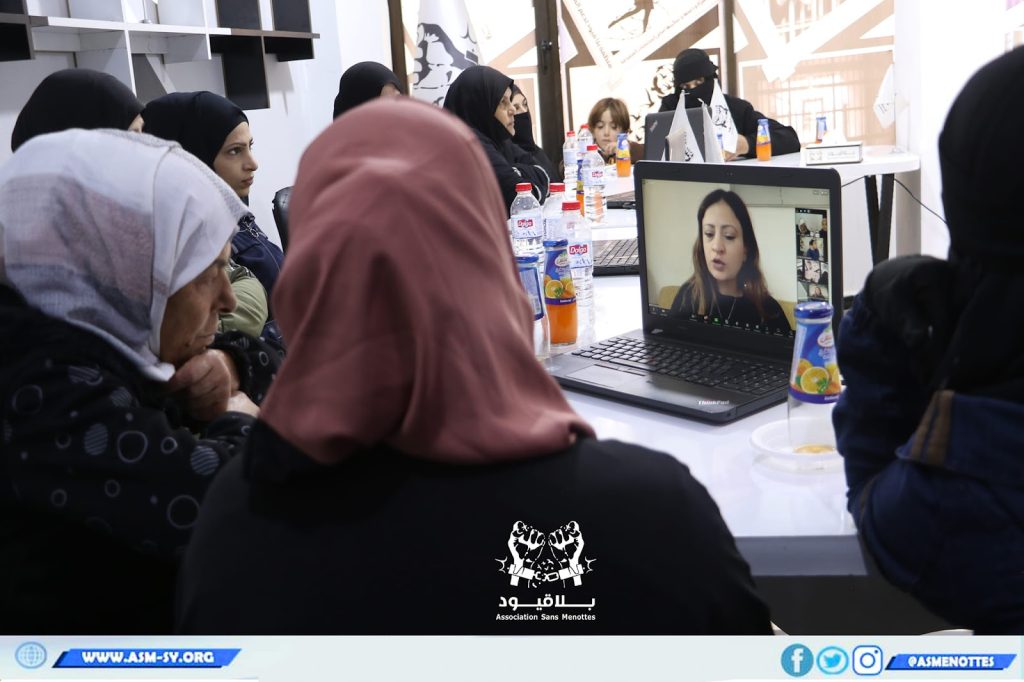The Vice President of the Syrian Opposition Coalition (SOC), Dima Moussa, participated in a dialogue session organized by the human rights organization Without Chains. The session, titled “Female Survivors as a Model,” brought together various prominent figures, including Katrin Langensiepen, member of the European Parliament of the Alliance 90/The Greens, and several Syrian advocates involved in addressing gender-based violence. Women survivors residing in northern Syria were also in attendance.
This symposium coincided with a global campaign advocating the fight against gender-based violence. Participants engaged in discussions on the issue of violence against women in conflict zones, exploring the roles of society, political entities, and civil institutions in finding practical solutions to address this pressing issue. The session delved into the Syrian situation, allowing women survivors to share their experiences, ranging from detention to societal discrimination and psychological persecution.
Vice President Moussa highlighted the SOC’s commitment to responding to and supporting the most vulnerable groups, particularly women survivors of the Assad regime’s detention centers and those facing violence and persecution. Moussa outlined the SOC’s plans, emphasizing the focus on enhancing women’s participation in political processes, empowering them across various domains, and creating opportunities for economic and social advancement. She stressed that such efforts significantly contribute to combating violence against women and underscored the importance of women’s involvement in public affairs, especially in politics, civil society, and human rights work.
Moussa underscored the detainee issue as a paramount concern in international meetings and conferences convened by the SOC and the Syrian Negotiations Commission. She cited consistent calls for action from the United Nations, nations involved in the Syrian crisis, and global organizations to pressure the Assad regime into releasing detainees and revealing the fate of those forcibly disappeared.
Additionally, Langensiepen discussed the role of the European Parliament in creating mechanisms to reduce violence against women, particularly those who experienced abuse in prison or faced repercussions from social customs in conflict areas.
Academic Rima Harbat, specializing in psychological support, shed light on the gravity of the psychological conditions of women subjected to persecution and violence during or after detention, addressing the effects of these practices and strategies to overcome them.
Maryam Shamdeen, Regional Director of the White Helmets Organization, highlighted the role of civil society organizations in dealing with women who have experienced violence, emphasizing the mechanisms used to raise awareness about gender-based violence. Syrian writer and journalist Ziyad Al-Munajjid elucidated the responsibilities of politicians, rights activists, media figures, and influential individuals in spreading awareness about this critical issue.
(Source: SOC’s Media Department)














